The Dark Side of Shopping Fast Fashion
Choices and decisions that we make have positive or alternatively negative effects. In the same manner purchases of products effects you and other people too.
Part of making good decisions is not using harmful products, it's a part of staying healthy and living a long life. Harmful products include anything that would pollute the planet, anything that would hurt you or anyone else in the process of manufacture, shipping or delivery of products.
Why Your Purchase May Not Be Worth the Risk
TERRIFYING HEALTH CONCERNS
Scientists found that a jacket for toddlers, purchased from Shein, contained almost 20 times the amount of lead that Health Canada says is safe for children. A red purse, also purchased from Shein, had more than five times the threshold. 🚑
Lead can cause damaging health effects to the brain, heart, kidneys and reproductive system. Children and pregnant people are more vulnerable, and infants and children are the most at risk.
STOLEN DESIGNS - INTELLECTUAL PROPERTY
Shein has faced allegations of copying designs from other brands and selling them without permission. This type of behaviour is known as intellectual property theft and is illegal. 👮 In some cases, Shein has been sued by the original designers for copyright infringement.
Not all the products sold by Shein are knock-off designs, but it's a good idea to research the brand and product before making a purchase to ensure that you are getting an authentic product that has not been stolen.
Knock-off products are bad because they infringe on the original designer's intellectual property rights. Products that are copied without the permission of the original designer is stolen. This means that the original designer is not being fairly compensated and robbed of their hard work. In addition their brand and reputation may be negatively affected by the lower quality of the imitation product.
"Excuse me @SHEIN_official can you please tell me why you’ve completely STOLEN my design? I'm a small independent SUSTAINABLE business and you’ve completely stolen my hard work?" -@fernm8
QUALITY CONCERNS
Customers have reported receiving products that are of poor quality, made from low-quality materials with fabric defects. Other quality concerns include inconsistent sizing, with some customers reporting that the sizes listed on the Shein website do not match the actual measurements of the clothing.
Additionally, some customers have expressed disappointment with the design and overall look of the products, stating that the products look different from what was depicted on the website.
Not all customers have had negative experiences with Shein's products and that the quality of their products can vary, nonetheless these quality issues results in a large amount of product return.
In terms of delivery, some customers have experienced long shipping times, which can result in disappointment and frustration. Additionally, some customers have reported receiving products that were damaged during shipping or arriving later than the estimated delivery date listed on the website.

PRIVACY CONCERNS
The owner of Shein has been fined US$1.9m over its handling of a data breach.
Login details for 39 million Shein accounts were stolen in 2018 after its parent company, Zoetop, was targeted by hackers.
Privacy concerns have been raised about Shein in regards to their handling of personal information. Some customers have expressed concerns about the company's data collection practices and whether their personal information is being properly protected.
Shein's privacy policy states that they collect personal information such as name, address, email address, and payment information in order to process orders, provide customer service, and improve their offerings. However, customers have raised concerns about how Shein uses and shares this information, particularly in regards to data sharing with third-party companies.
"Fast fashion is not just a problem because of what we wear, but also because of how our clothes are made."
UNFAIRLY TREATED WORKERS - ETHICAL CONCERNS
Shein has faced criticism for its labor practices, including alleged underpayment of workers. These practices have been reported both in media and by advocacy groups, and investigations have found evidence of substandard working conditions and low wages in some of the factories producing goods for the company.
It has been reported that Shein workers are fined two thirds of their daily wage if they make a single mistake. With a daily target of 500 pcs per person and little rest with long working hours, it is hard not to make any mistakes.
There have been several reports of workers being unfairly treated at factories producing goods for Shein. Some of the most common allegations include:
Low wages: Workers have reported being paid wages that are below the minimum wage required by law in the countries where the factories are located.
Excessive overtime: Many workers have reported working long hours, often exceeding the legal limit for weekly overtime. It has been reported that workers have to start work at 8am and finish their workday after midnight in order to make a living wage. A 75 hour week is not uncommon.
Poor working conditions: Some workers have reported dangerous and unsanitary working conditions, including exposure to hazardous chemicals and inadequate ventilation.
Lack of job security: Many workers have reported being hired on short-term contracts, making it difficult for them to plan for their future and leaving them vulnerable to exploitation.
Denial of benefits: Some workers have reported not receiving benefits such as paid time off, sick leave, or health insurance, despite working full-time hours.
These reports are concerning and highlight the need for companies like Shein to take responsibility for their supply chains and ensure that workers are treated fairly and with dignity.
Why Fast Fashion Is Bad for the Environment - Shein Controversies
ENVIRONMENTAL IMPACT
Fast fashion, including Shein, has a significant impact on the environment, due to the resources used to produce the clothes and the waste generated by the industry.
Shein, like many fast fashion brands, has faced criticism for its impact on the environment. The fast fashion industry has been criticised for its excessive waste, pollution, and resource depletion. This not only contributes to environmental degradation but also perpetuates a cycle of overconsumption and waste.
The concerns about the working conditions of the individuals who produce fast fashion clothing, including low wages, long hours, and unhealthy working conditions can contribute to exploitation and human rights abuses in the supply chain.
These environmental and ethical concerns have led some consumers to call for greater transparency and accountability from fast fashion brands like Shein, as well as a shift towards more sustainable and ethical fashion practices.
Read about why fast fashion is bad and learn more about better alternatives

"As global clothing consumption skyrockets, fed by ruthless “fast fashion” brands, it’s creating an environmental catastrophe" - ABC net
GREENWASHING
Unfortunately there is a growing concern about greenwashing and associated risk of brands being found to make misleading claims.
Shein churns out staggering numbers of dirt cheap, disposable fashion items, with more new styles per day than any other fast fashion brand. Because the clothes are so cheap, items that are returned end up in landfills, since it is cheaper for the company to throw them away than putting them back in circulation.
Many of the cheap clothes produced by fast fashion brands end up once their short lives are over: on huge dump sites, burnt on open fires, along riverbeds and washed out into the sea, with severe consequences for people and the planet.
An astonishing 20 million thrown away clothing arrive on the beaches of Ghana every week. Discarded clothes get washed up by the waves and end up buried in the sand creating 20 meter high hills.
Shein acknowledges that they are a part of the problem by making a pledge (seen here) with regards to textile waste problem in Ghana. But without any drastic change to its business model, this appears to be nothing more than a greenwashing stunt.
For one Shein’s supply chain and textile waste impacts are not limited to Ghana. Following the ‘Polluter Pays’ principle, fast fashion giants should be made financially responsible for the cost of cleaning up the environmental and health damage caused throughout their supply chain, regardless of the geographical extent of the damage.
Read more about textile waste in Ghana here


You Can Help
Be a part of the solution not the problem by making sound purchase decisions. Purchase items that you will wear for many years to come and chose quality over quantity. Explore sustainable options and look for smaller independent retailers that have a transparent ethical approach. Ask questions and look for pre-order offers when available as this helps limit over production.


